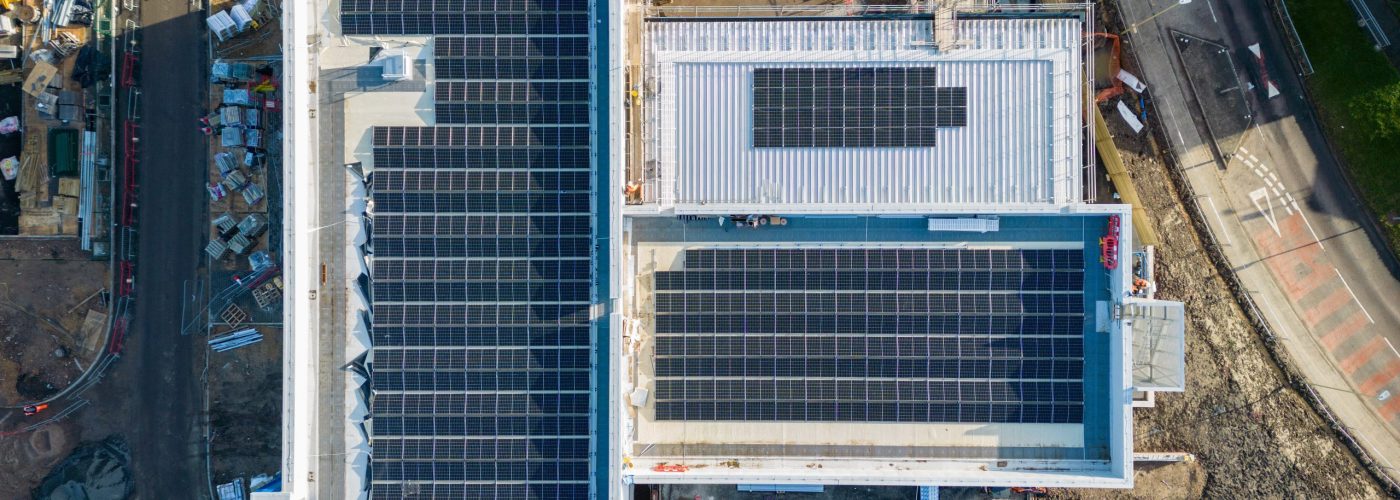The contractor behind the construction of a tri-station in Hebburn has shared the latest onsite images as the project heads towards completion and hand over in April 2024.
North of England contractor, Esh Construction is the appointed contractor to deliver one of the UK’s first carbon neutral emergency service tri-stations on behalf of Tyne and Wear Fire and Rescue Service and Fire Authority.
The new Hebburn Tri-Station will become home to Tyne and Wear Fire and Rescue Service (TWFRS), Northumbria Police and the North East Ambulance Service (NEAS).
It is based on land between Hebburn’s Marine Drive and Campbell Park Road and will replace the current Hebburn Community Fire Station, which has been in operation for nearly 60 years.
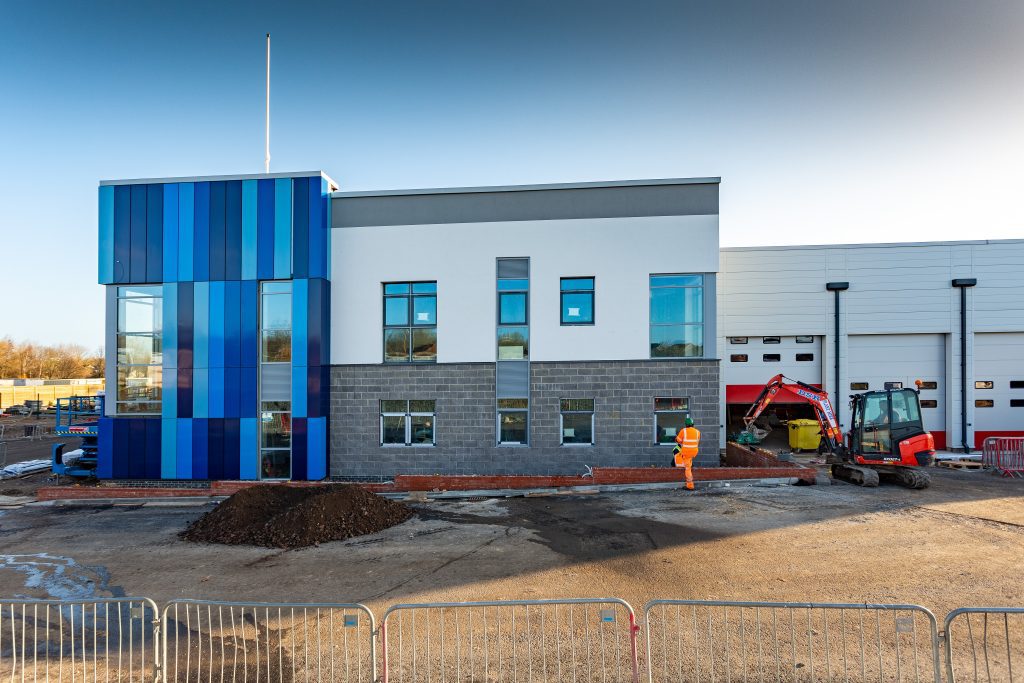
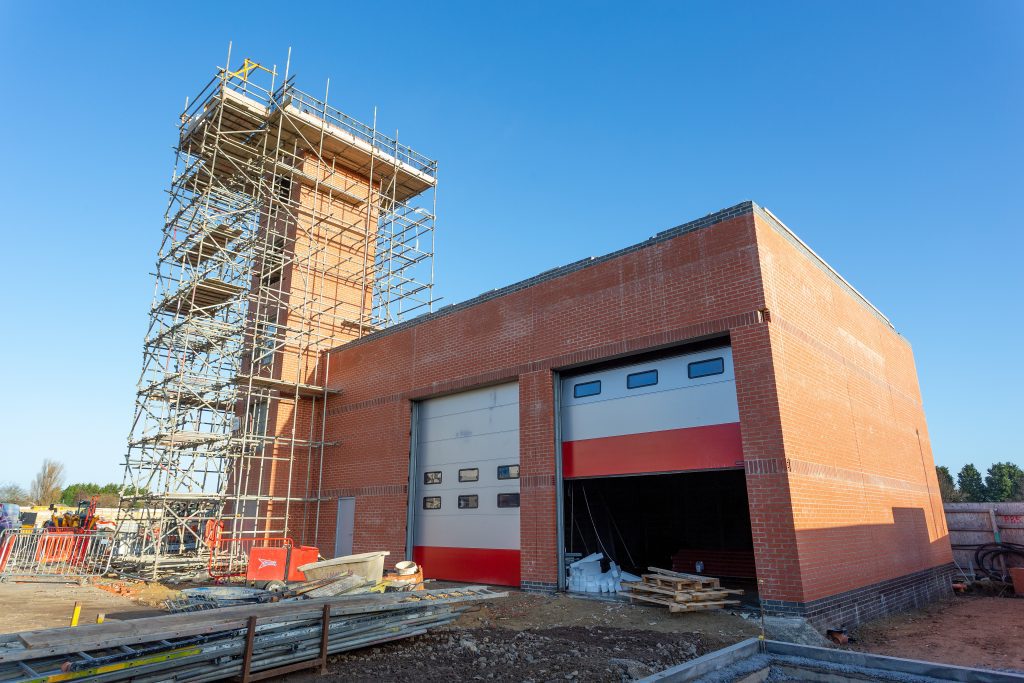
Passers-by can now see two buildings taking shape – a main building which will include staff accommodation, offices, and appliance bays for emergency vehicles, as well as a free-standing training building to support and enhance the skills of specialist rescue as well as rope rescue fire fighters.
The artist impressions released ahead of the project starting last year can now be seen in real life, with the striking multi-blue colour rain screen installed on the main building and the finishing touches being applied to the external render and windows.
The rear of the main building includes five appliance bays, which will be used by the Fire and Rescue Service and the North East Ambulance Service.
The site includes light vehicle charging (EV) points to support all three emergency services’ current fleets of electric vehicles. But as technology develops – arrangements have also been put in place for future proofing any potential expansion of heavy or light vehicles. ‘E’ cycle storage and charging facilities have been included for the Police’s Neighbourhood Policing Team.
Brickwork on the fire house, training tower and associated garage is now complete along with the installation of the specialist rope rescue training crane jib.
The tower and fire house provides outstanding facilities for training and exercises. It will also allow joint training scenarios with partner blue light services to adopt a universal approach to supporting the general public in all things safety related.
Externally, work on the perimeter fencing and landscaping will continue, and a wildflower meadow will be planted that will help to nurture the relationship between local wildlife and the environment.
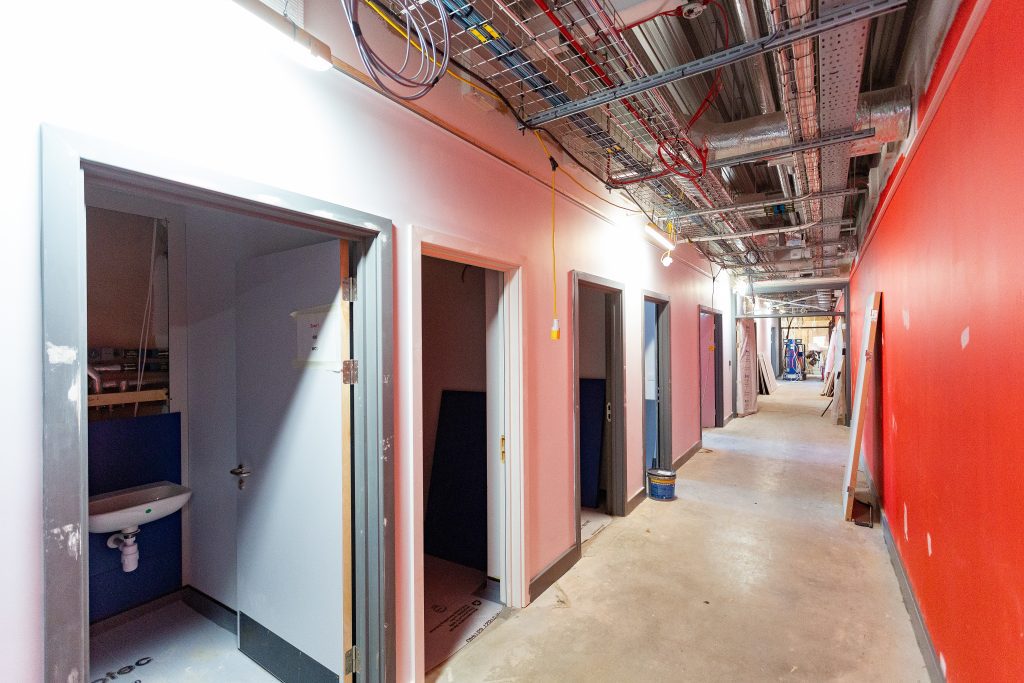
Another element of the project that demonstrates the tri-station’s eco-credentials is the use of modern sustainable technologies including ground source heat pumps and photovoltaic panels (PV’s) of which there are over 340 panels spread across the tri-stations flat roofs. These PV’s will help generate up to 100% of clean renewable electricity required to run the tri-station.
Grant Watson, Construction Manager for Esh’s commercial build division, said: “At Esh, we pride ourselves on building and maintaining strong working relationships with our clients and we are excited to see the pioneering scheme come to life as a key hub for the local community.”
The two-storey purpose-built facility is being delivered to ensure the emergency services provide the best service possible to the communities across Tyne and Wear. To reduce the building’s environmental impact all walls, floors, the roof and structure have been designed to be as energy and thermal efficient as possible.
TWFRS Chief Fire Officer, Peter Heath, said: “We are delighted to see the progress that has been made over the past 14 months with the construction of the Hebburn Tri-Station in South Tyneside. It represents our continued commitment to keeping people safe.
“The station design included a clear briefing to minimise the impact of contaminants from firefighting and the design and flow of the station will contribute significantly to our work to minimise the impact of the firefighting activity on our staff and partners.”
During the early construction phases, 585 hot rolled steel girders weighing 151 tonnes were constructed on site, and if they had been laid ‘end to end’ it would’ve been the equivalent to the length of 20 football pitches. There are also 12 bore holes helping to provide warm and hot water on the Tri-Station with a cumulative depth of more than 2,500m.
Esh Construction is utilising locally sourced materials and 86% of construction operatives hail from the North East. A total of 228 apprentice weeks have also been delivered on the scheme. To find out more about Esh Group, visit www.eshgroup.co.uk
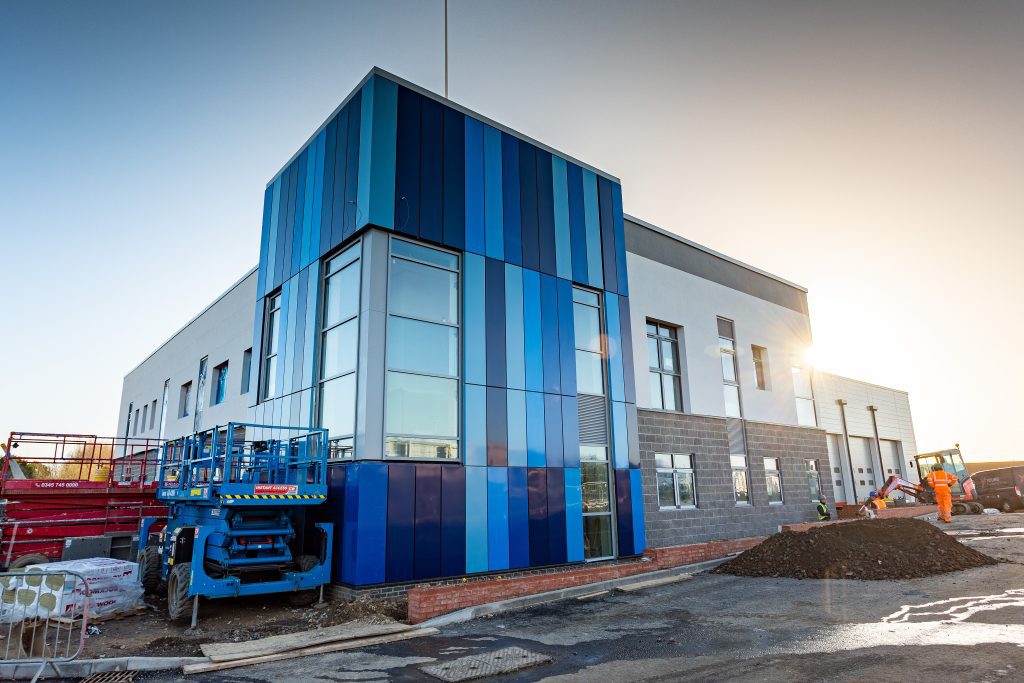
Building, Design & Construction Magazine | The Choice of Industry Professionals


